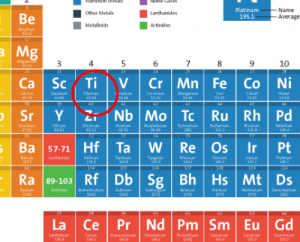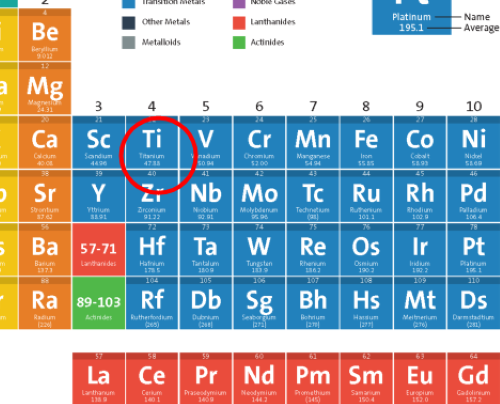
ASTM B299 Standard Specification for Titanium Sponge
| Product | Preparation Methods | Shapes |
| Sponge titanium | Reduction of titanium tetrachloride | Lump or granular form |
Note:
The virgin titanium shall be devoid of scrap and deliberate contaminants, ensuring it is presented in consistent, thoroughly mixed batches.
ASTM B363 Standard Specification for Seamless and Welded Unalloyed Titanium and Titanium Alloy Welding Fittings
| Product | Preparation Methods | Shapes |
| Seamless and welded unalloyed titanium and titanium alloy welding fittings | Hammering, pressing, piercing, extruding, upsetting, rolling, bending, fusion welding, or by a combination of two or more | Billets, bars, plates, seamless or welded pipe or tube |
ASTM B367 Standard Specification for Titanium and Titanium Alloy Castings
| Products | Compositions |
| UNS R52550 | Unalloyed titanium |
| UNS R52551 | Unalloyed titanium |
| UNS R56409 | 6 % aluminum, 4 % vanadium |
| UNS R52700 | 0.12 to 0.25 % palladium |
| UNS R52703 | 0.12 to 0.25 % palladium |
| UNS R56320 | 3 % aluminum, 2.5 % vanadium |
| UNS R53400 | 0.3 % molybdenum, 0.8 % nickel |
| UNS R52402 | 0.04 to 0.08 % palladium |
| UNS R52702 | 0.04 to 0.08 % palladium |
| UNS R54250 | 4 % aluminum, 2.5 % vanadium, and 1.5 % iron |
ASTM F620 Standard Specification for Titanium Alloy Forgings for Surgical Implants in the Alpha Plus Beta Condition
| Composition | Preparation Methods | Shapes | |
| F136 (UNS R56401) | Titanium-6aluminum-4vanadium eli (extra low interstitial) alloy | Wrought | Strip, sheet, plate, bar, forging bar, and wire |
| F1295 (UNS R56700) | Titanium-6aluminum-7niobium alloy | Wrought annealed, cold worked, or hot rolled | Bar, wire, sheet, strip, and plate |
| F1472 (UNS R56400) | Titanium-6aluminum-4vanadium alloy | Annealed or cold-worked | Strip, sheet, plate, bar, forging bar, or wire |
| F2066 (UNS R58150) | Titanium-15 molybdenum alloy | Wrought | Strip; sheet; plate; bar; or wire |
ASTM Standard Specification for Titanium and Titanium Alloys: FAQs
1. What Is ASTM?
ASTM International, formerly known as American Society for Testing and Materials, is an international standards organization that develops and publishes voluntary consensus technical standards for a wide range of materials, products, systems, and services.
2. Who Uses These Standards?
These standards are used by manufacturers, engineers, and professionals involved in the design, production, and testing of titanium materials and products. Industries that frequently use these standards include aerospace, medical implants, chemical manufacturing, and marine applications.
3. Why Are These Standards Important?
These standards ensure materials and products have the necessary properties for their intended applications. They help in maintaining quality, safety, and reliability, while also facilitating global trade and innovation.
4. How Are ASTM Standards Developed?
ASTM standards are developed by committees of experts from industry, academia, and government agencies. The development process is consensus-based, ensuring that all interested parties have a voice in the final standard. The process includes drafting, reviewing, and revising the standards before they are published.
5. How Often Are ASTM Standards for Titanium and Titanium Alloys Updated?
ASTM standards are reviewed at least every five years as part of the organization’s process to ensure they remain current with technological advances and industry needs. However, amendments or revisions can be made more frequently if necessary.
